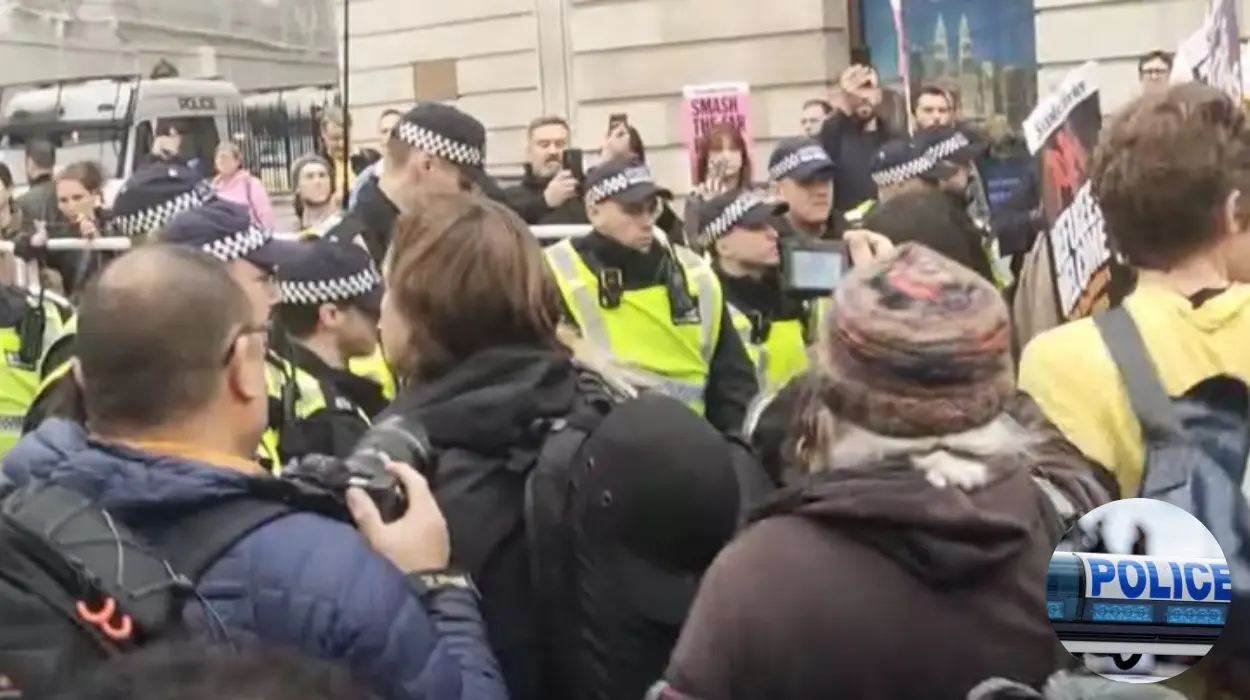Key Points:
- Residents in Havering express growing frustration over lack of visible policing.
- Officers are being pulled from Havering to manage frequent central London protests.
- Havering is part of the East Area BCU with Barking, Dagenham, and Redbridge, and residents fear they’re treated as the lowest priority.
- Police numbers are critically low, and visible patrols are nearly non-existent.
- Police stations in the borough are in a state of disrepair due to underfunding.
- Officers are overstretched but remain committed to community safety.
- February 2025: Havering Conservatives proposed funding 2 additional dedicated Met officers to stop redeployments.
- Community support for police is strong, but anger is directed at political decisions and lack of funding.
- The Havering Daily reports multiple warnings over the years were ignored; now, the crisis is unfolding.
- Officers now triage emergency calls due to staffing levels.
- Protests in London are daily occurrences and draining local boroughs’ resources.
Havering is facing a visible policing crisis as officers are increasingly redeployed to manage central London protests, leaving local communities feeling unprotected and underprioritised.
- Key Points:
- Why is visible policing disappearing in Havering?
- What role are London protests playing in this shortage?
- Have warnings about this crisis been ignored?
- How are Havering’s police facilities holding up?
- What political action has been proposed?
- Do residents support more police presence?
- Who is being held accountable?
- Is this unique to Havering?
- What’s next for Havering?
Why is visible policing disappearing in Havering?
As reported by The Havering Daily on 13th June 2025, residents of Havering have raised alarm over what they describe as an almost complete disappearance of visible policing in the borough. The issue, long simmering, has now reached crisis levels due to a surge in daily protest deployments in central London that are siphoning off the already thin local police presence.
Havering falls under the East Area Basic Command Unit (BCU), which also includes Barking and Dagenham and Redbridge. Many residents feel Havering is routinely deprioritised when officers are allocated, receiving fewer resources than its neighbouring boroughs. These concerns are no longer speculative. The current state of policing has led some communities to believe there are times when Havering is left without any officers at all.
What role are London protests playing in this shortage?
According to The Havering Daily, a significant number of police officers assigned to outer London boroughs are regularly pulled into central London to police daily protests. These deployments, meant to ensure public order in the city centre, are increasingly stripping communities like Havering of basic local police coverage.
In one particularly stark report earlier this month, The Havering Daily noted that boroughs were left “stripped back to the bone,” with officers stretched dangerously thin across vast geographical areas. Some officers now admit that even responding to 999 calls requires a triage process to determine the severity, a shocking state for a borough within a major capital city.
Have warnings about this crisis been ignored?
Yes. Officers and policing leaders have long cautioned that if funding and staffing levels continued to decline, the consequences would be devastating. As reported by The Havering Daily, these repeated warnings were often dismissed by policymakers and even mocked, with accusations of “crying wolf.” But as recent events have demonstrated, “the wolf is here, and it’s biting deep.”
Many officers now describe visible policing as a “nostalgic memory.” Despite their efforts, the few remaining officers are overwhelmed, responding to serious incidents like stabbings without adequate backup or resources.
How are Havering’s police facilities holding up?
Poorly. In addition to staff shortages, police stations in the borough are physically deteriorating. The Havering Daily highlights that many buildings are “crumbling” and “dilapidated,” with no funding allocated for repairs or basic maintenance. The lack of financial investment is causing frustration among officers and residents alike, especially as crime rates and population numbers continue to rise across the capital.
What political action has been proposed?
In February 2025, Havering Conservatives introduced a budget amendment aimed at addressing this urgent policing gap. As reported on Havering Conservatives’ official website, the proposal included funding for two additional Metropolitan Police officers dedicated solely to Havering, with a condition that they not be redeployed to central London protests. The same amendment also sought to expand CCTV in parks, keep libraries open, and reduce council debt — reflecting a broader strategy focused on community infrastructure and safety.
However, the broader structural problem — the chronic underfunding of policing — remains largely unaddressed at national levels, despite ongoing calls for change from local politicians and residents.
Do residents support more police presence?
Absolutely. The consensus among Havering’s residents is clear: they want more police on their streets, not fewer. Unlike some inner-city narratives around defunding or reforming the police, the public sentiment in Havering is firmly in favour of increased visibility and quicker response times.
As The Havering Daily articulates, “Havering’s officers continue to do their best, but this week served as a stark reminder that the magic box of officers is empty.” Many residents reject the idea that police are to blame for the shortfall and instead place responsibility on funding decisions made at higher levels of government.
Who is being held accountable?
Despite the severity of the crisis, there’s little consensus on who will be held responsible. The Havering Daily emphasises that frontline officers are still showing up, still performing life-saving work under immense pressure — and still doing so without adequate political or financial support.
“The few officers left are stretched impossibly thin,” the report says. “And yet, it’s these same officers who rush to the scene of stabbings, who apply life-saving aid, and who still try to do their jobs with dignity and courage.”
The call from Havering is not to blame officers, but to hold accountable those who manage the purse strings — whether at City Hall, Parliament, or within national policing bodies.
Is this unique to Havering?
No — but the borough’s sense of neglect is acute. Other parts of the East Area BCU are also affected, but Havering residents argue they often get the worst of it. While neighbouring boroughs may also experience redeployments, Havering’s geographic position and limited infrastructure appear to make the borough more vulnerable.
What’s next for Havering?
Without immediate and targeted intervention, Havering risks reaching a point where police presence is more symbolic than functional. Calls from community groups, local councillors, and opposition politicians are growing louder. But unless those calls are answered with funding and firm commitments, residents fear the deterioration will continue.
The final message from The Havering Daily is sobering: “If you’re frustrated about the lack of policing, don’t blame the officers. Blame those who have failed to properly fund, support, or prioritise them.”



